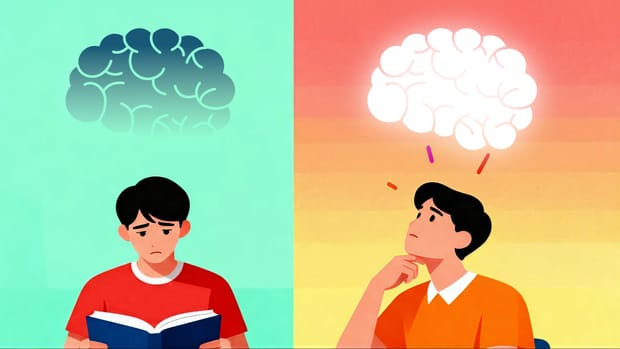This article is part of Brainscape's Science of Studying series.
You know that moment when you almost remember something, like the name of that actor from that show with the dragons, and your brain feels like it’s buffering? That uncomfortable mental strain is actually your brain doing its best work.
That, in a nutshell, is retrieval practice: the act of actively pulling information out of your memory, instead of just passively recognizing it in, for example, a multiple-choice list.
Put simply, some study methods keep the answer in front of you, while others compel you to pull it out of your head. The infographic below lays out that passive vs. active split with concrete examples.

Every time you force your brain to retrieve information (whether by quizzing yourself, explaining a concept aloud, or flipping through flashcards), you’re training it to recall that knowledge faster and more reliably next time. It’s like doing reps at the gym, except instead of biceps, you’re building mental recall strength.
Retrieval practice is the cornerstone of efficient learning. It helps you restructure your memory for long-term mastery.
In other words, if you care about learning as a student, parent, or educator, you need to understand how to leverage this cognitive science term!
We’ll be exploring that and more in this article, so let’s dive right in…
Where Did Retrieval Practice Come From?
Long before cognitive psychologists gave it a name, students intuitively discovered retrieval practice every time they quizzed themselves before a test. But the scientific study of this effect began over a century ago.
In 1909, psychologist Edwin R. Guthrie noticed that recalling information strengthened memory better than passively re-reading it. But it was Henry Roediger and Jeffrey Karpicke’s landmark studies in the 2000s that really put retrieval practice on the cognitive science map. Their research found that students who tested themselves retained 50% more information a week later than students who only re-studied (Roediger & Karpicke, 2006).
Since then, retrieval practice has become one of the most replicated findings in all of learning science. Meta-analyses confirm it works across subjects, ages, and formats, from vocabulary to anatomy to advanced math (Agarwal et al., 2021; Yang et al., 2021).
How Does Retrieval Practice Work, Biologically?
Think of your brain as a vast network of winding paths. When you first learn something, you carve a faint trail through the forest. Each time you recall that information, you walk the path again, trampling it down, widening it, making it easier to find.
Neuroscientists call this memory reconsolidation with each retrieval triggering the memory to reactivate, strengthen, and re-store itself. Over time, those connections become more efficient and resilient to forgetting.
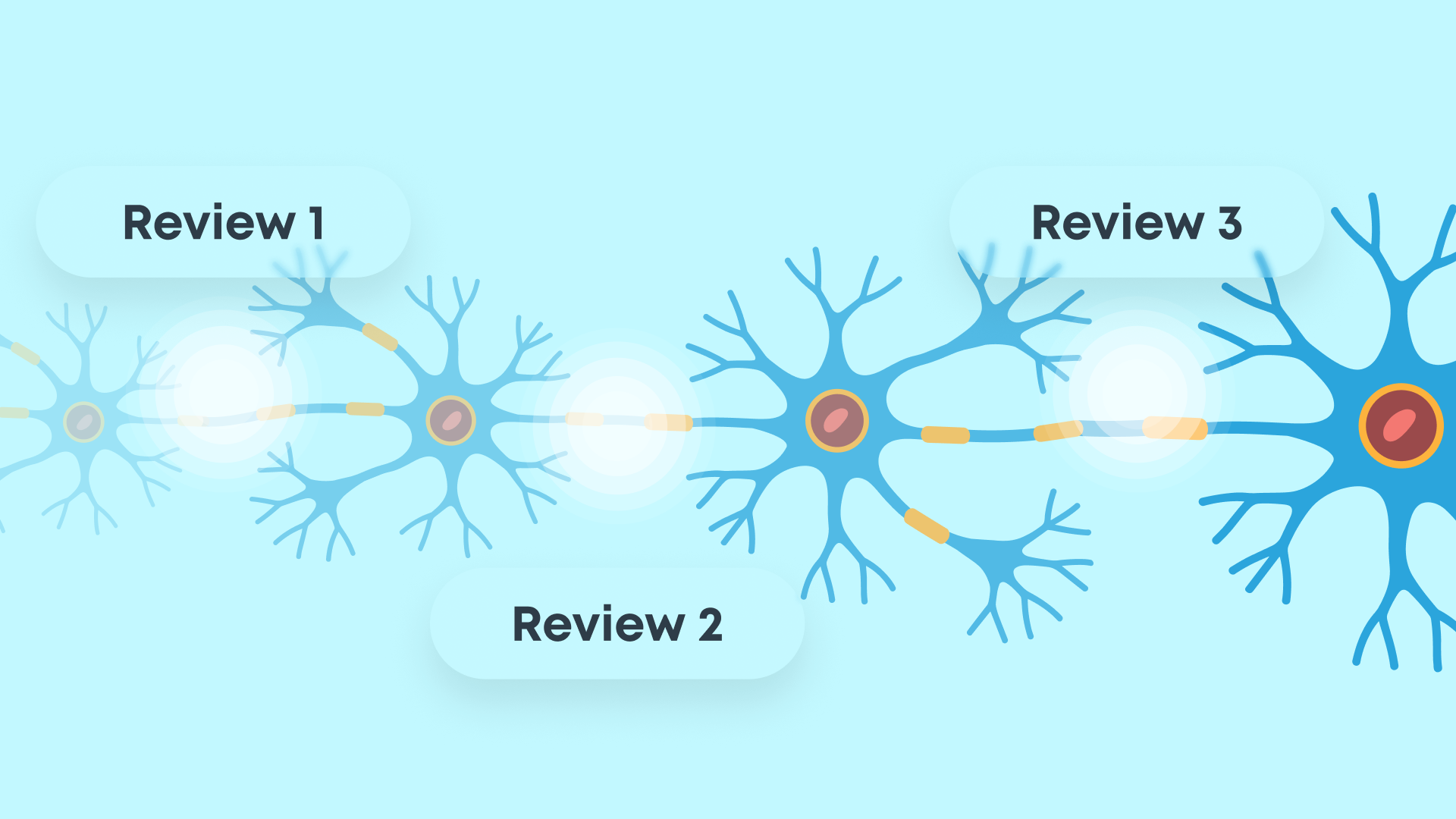
In other words:
- Retrieval isn’t just “checking” memory, it’s rebuilding it.
- Each successful recall improves storage strength (how durable the memory is) and retrieval strength (how quickly you can access it).
- Even failed retrieval attempts (those frustrating “Ugh, I knew this yesterday!” moments) are productive. The effort primes your brain to encode the correct answer more strongly next time (Potts & Shanks, 2014; Zheng et al., 2024).
Retrieval is cognitive heavy lifting… but that’s exactly why it works.
What Are the Key Principles of Retrieval Practice?
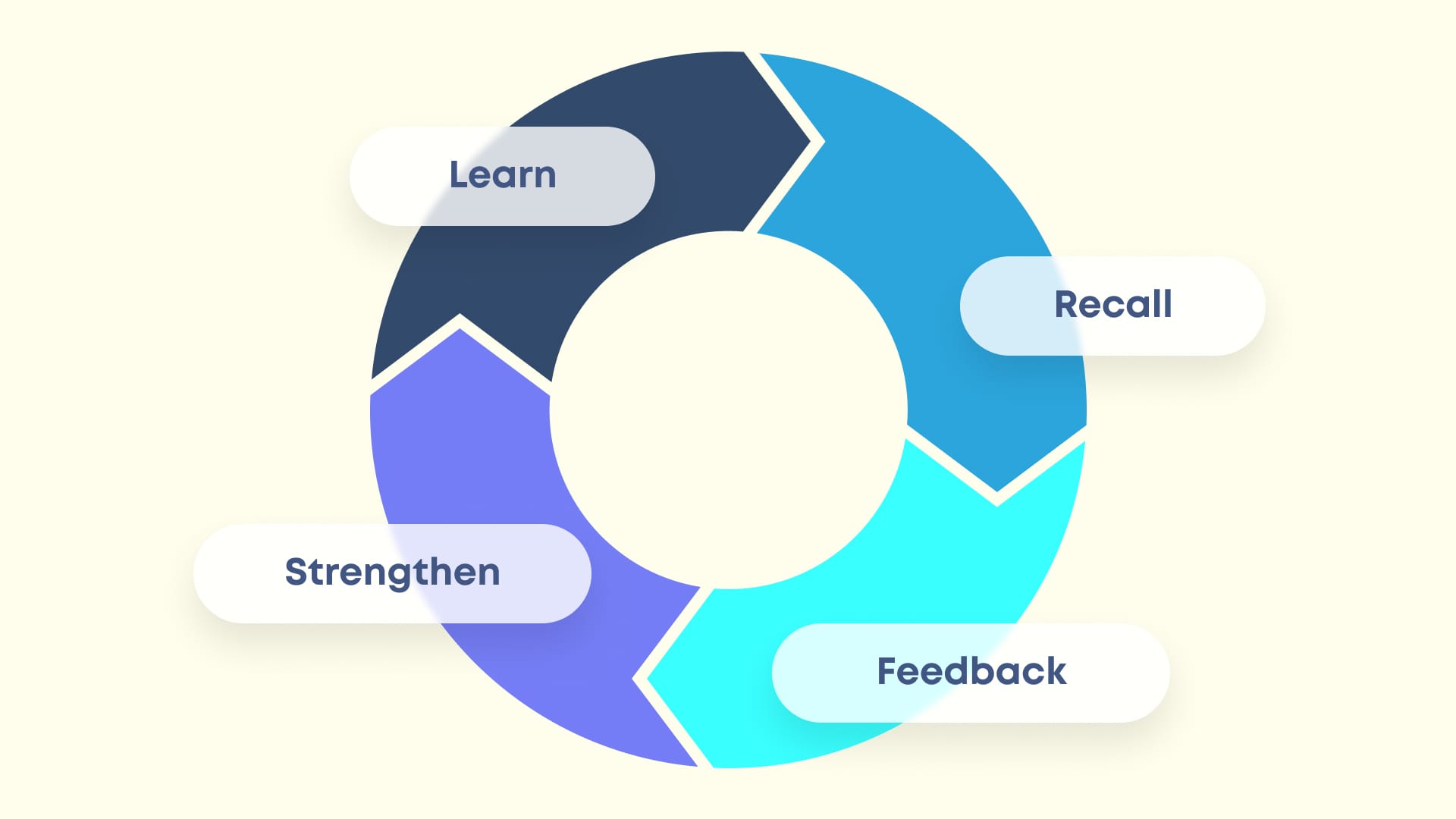
1. Effortful Recall = Stronger Learning
If retrieval feels hard, that’s a good sign. The more your brain struggles (and succeeds) to find an answer, the stronger that memory becomes. Cognitive scientists call these “desirable difficulties” (de Bruin & van Merriënboer, 2023). Easy learning doesn’t stick; effortful learning does.
2. Repetition Builds Retention
One retrieval session helps, but multiple spaced retrievals turbocharge memory. Spacing out your practice (reviewing the same material over days or weeks) leverages the spacing effect, or spaced repetition, another cognitive powerhouse that works hand-in-hand with retrieval (Cepeda et al., 2006; Trumble et al., 2023).
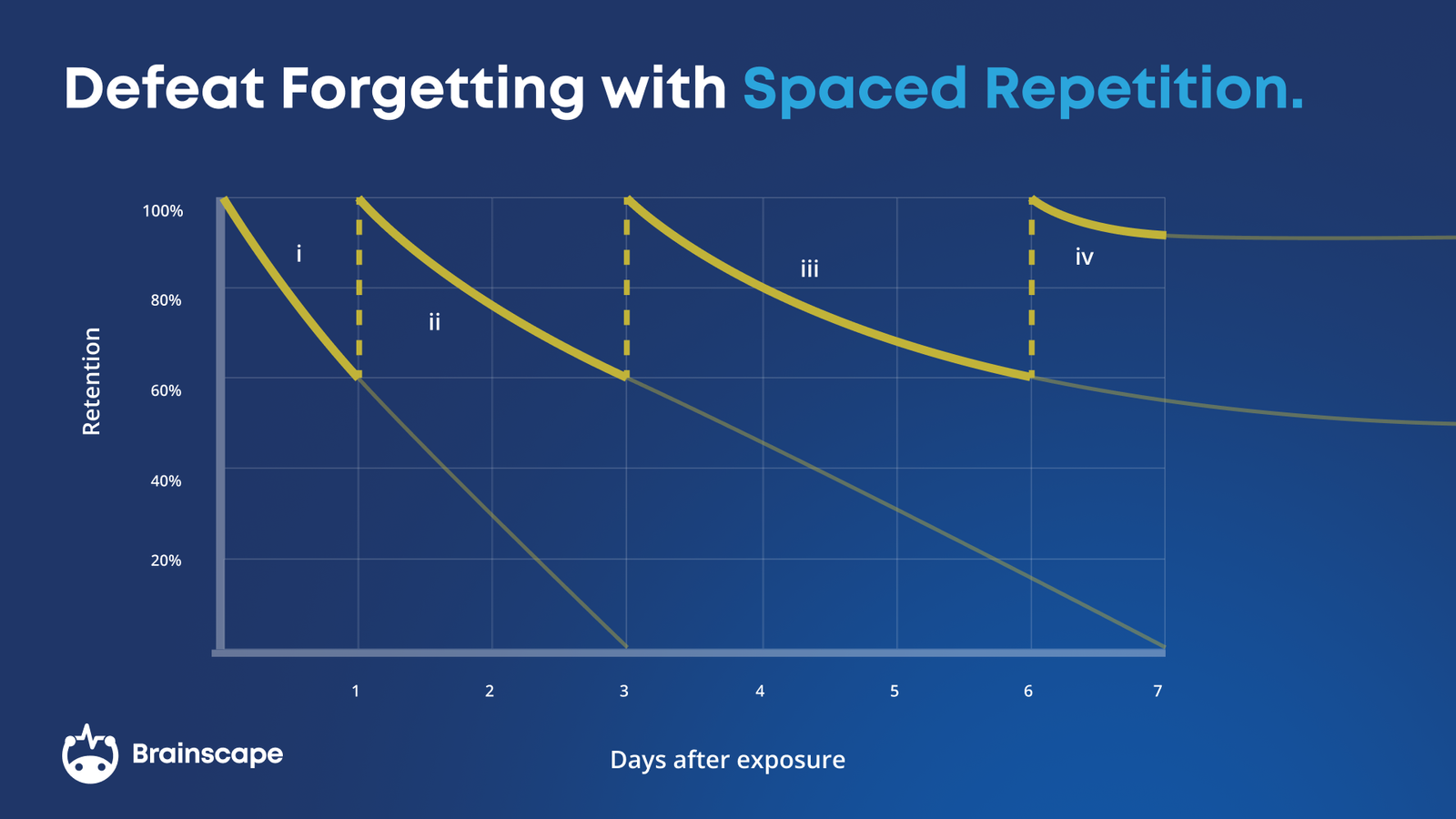
3. Feedback Matters
Testing without feedback is like lifting weights without knowing if you’re improving. Immediate feedback helps your brain correct errors and reinforce accurate memories. Even delayed feedback can strengthen long-term learning, as long as you check yourself eventually (Butler et al., 2010).
4. Mix It Up (Interleaving)
Retrieval works best when you mix topics instead of drilling the same one over and over. Interleaving practice forces your brain to differentiate between concepts, improving transfer and adaptability, the holy grail of real-world learning!
5. Retrieval Is a Metacognitive Superpower
Each retrieval attempt gives you insight into what you truly know vs. what you only think you know. That awareness (a fancy-sounding term called metacognition) helps you prioritize weak areas and allocate study time more effectively (Dunlosky & Rawson, 2015).
What’s the Difference Between Retrieval Practice, Active Recall, and Free Recall?
If you’ve ever wandered the internet looking up study hacks, you’ve probably seen the terms retrieval practice, active recall, and free recall used almost interchangeably. And honestly? They’re all part of the same cognitive family, but with slightly different DNA.
Retrieval practice is the umbrella term. It refers to any method where you deliberately pull information out of your memory instead of just recognizing or re-reading it.
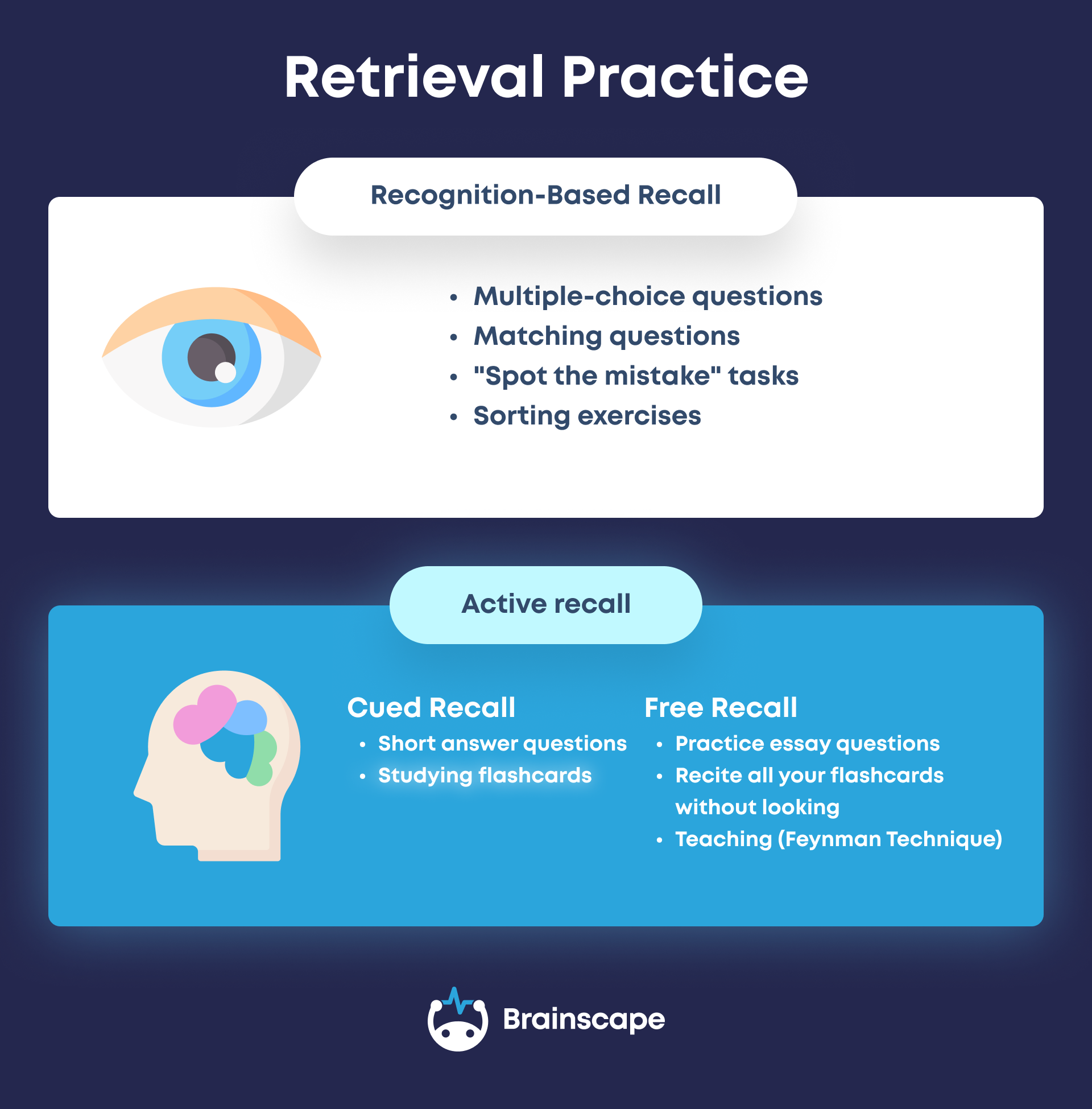
Active recall is the hands-on application of that principle: the “how” rather than the “what.” Every time you read a flashcard prompt or quiz yourself, you’re engaging in active recall, which is retrieval practice in action.
Free recall, meanwhile, is a more specific type of retrieval used in psychology research. It’s when you try to recall information without any cues, like writing down every state capital you can remember.
So while the terms overlap, they all describe the same effective learning process: getting your brain to do the work, and getting smarter because of it.
Speaking of which…
Why Does Retrieval Practice Matter for Learning and Teaching?

Because it’s the rare unicorn of cognitive science: simple, free, and ridiculously effective.
For students, retrieval practice transforms studying from passive review into active learning.For educators, it’s one of the most reliable ways to boost retention without overhauling a curriculum.
Here’s how it pays off:
- Stronger long-term retention: You forget less over time.
- Better transfer: You can apply knowledge in new contexts (which is, let’s face it, the whole point).
- More efficient studying: You spend less time re-learning what you already “learned.”
- Lower test anxiety: Because the exam now feels familiar: you’ve already practiced recalling under pressure. You got dis!
And here’s the kicker: you don’t need special equipment. Just structured opportunities to think without looking; to pull answers from your brain instead of from the page.
Let’s now turn our attention to an accessible and free digital tool that’s designed to do exactly that…
How Do Digital Flashcards Leverage Retrieval Practice?
Flashcards are retrieval practice in its purest form. One side asks, the other answers; and in between those two sides is the magic moment: the recall.
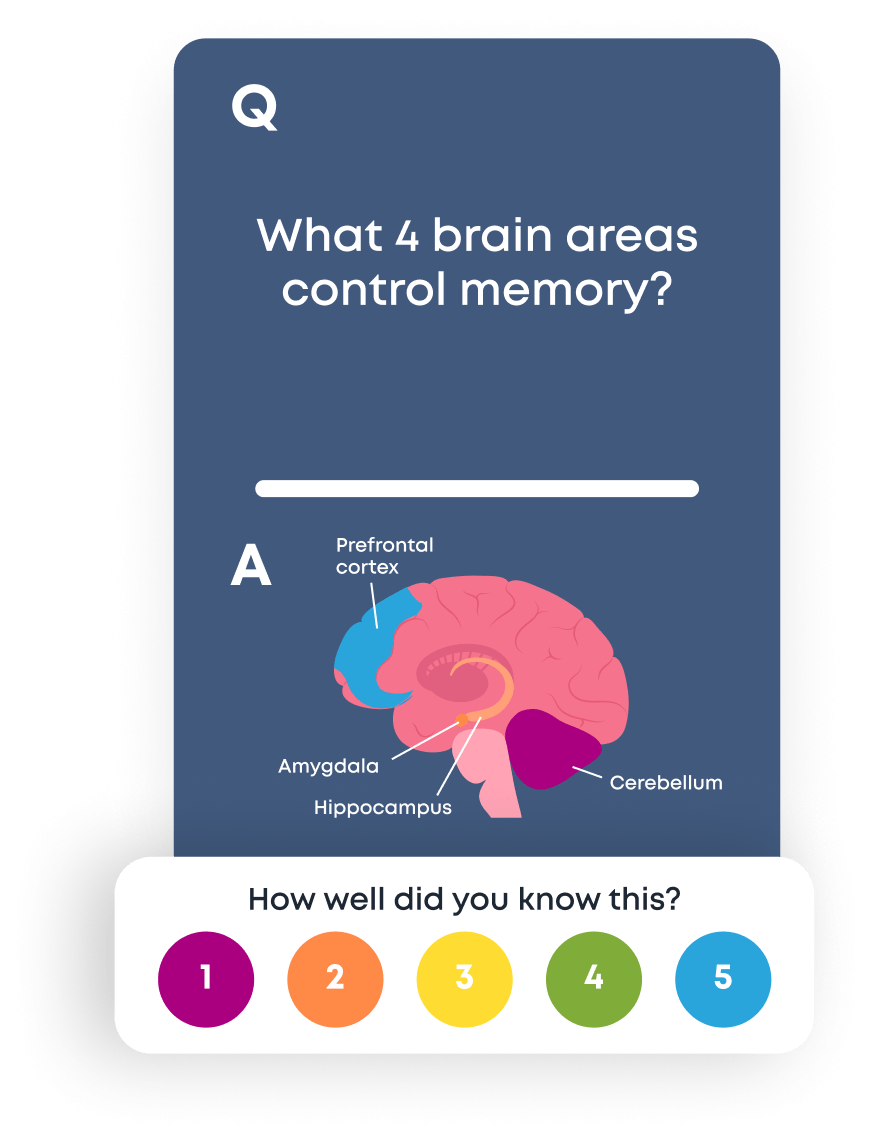
Digital flashcards, though, take that process to another level because they automatically apply so many of the cognitive science principles that lead to fast effective learning, including (as you’ll see) spaced repetition and metacognition.
Here’s how flashcards turn cognitive theory into daily action:
- Active Recall, Automated. Every card is a mini retrieval challenge, forcing your brain to produce, not recognize, the answer.
- Spaced Repetition, Built In. Concepts you struggle with appear more often, while confident ones are spaced further apart. This is called spaced repetition and the best flashcard apps have that baked into their study algorithms.
- Confidence Ratings = Metacognitive Feedback. Once you’ve flipped over a flashcard, rating how well you knew it trains your self-awareness and tells the algorithm how to optimize your review schedule. Metacognition (thinking about your thinking) is yet another principle that deepens learning and flashcards with built-in confidence-based repetition really tap into this. (Look for these terms when shopping around for a good flashcard app.)
- Short, Frequent Sessions. Mobile-friendly design encourages bite-sized bursts of recall, the exact format your brain prefers for long-term retention.
Platforms like Brainscape and Anki use this trifecta (retrieval, spacing, and metacognition) to help learners transform every minute spent studying into durable memory.
So, What’s the Takeaway On Retrieval Practice?
Retrieval practice is the engine of learning itself. Every time you test yourself, teach someone else, or pull an answer from memory, you’re literally rewiring your brain to remember faster and forget slower.
So:
- Trade rereading for recalling.
- Make quizzing and practice tests a habit, not a chore.
- Embrace the struggle; it means you’re learning.
- And lean on digital flashcards to master any content-heavy subject.
If you do all these things, you’ll forever have the skill to learn anything as quickly and as painlessly as humanly possible.
Get Brainscape's Educator User Guide
Curious to learn more about how to introduce Brainscape into your physical or virtual classroom? Our Educator User Guide provides a detailed walkthrough of how to get set up. It'll also give you all the material you need to motivate for its adoption amongst your students, their parents, and/or the faculty of your school or college:
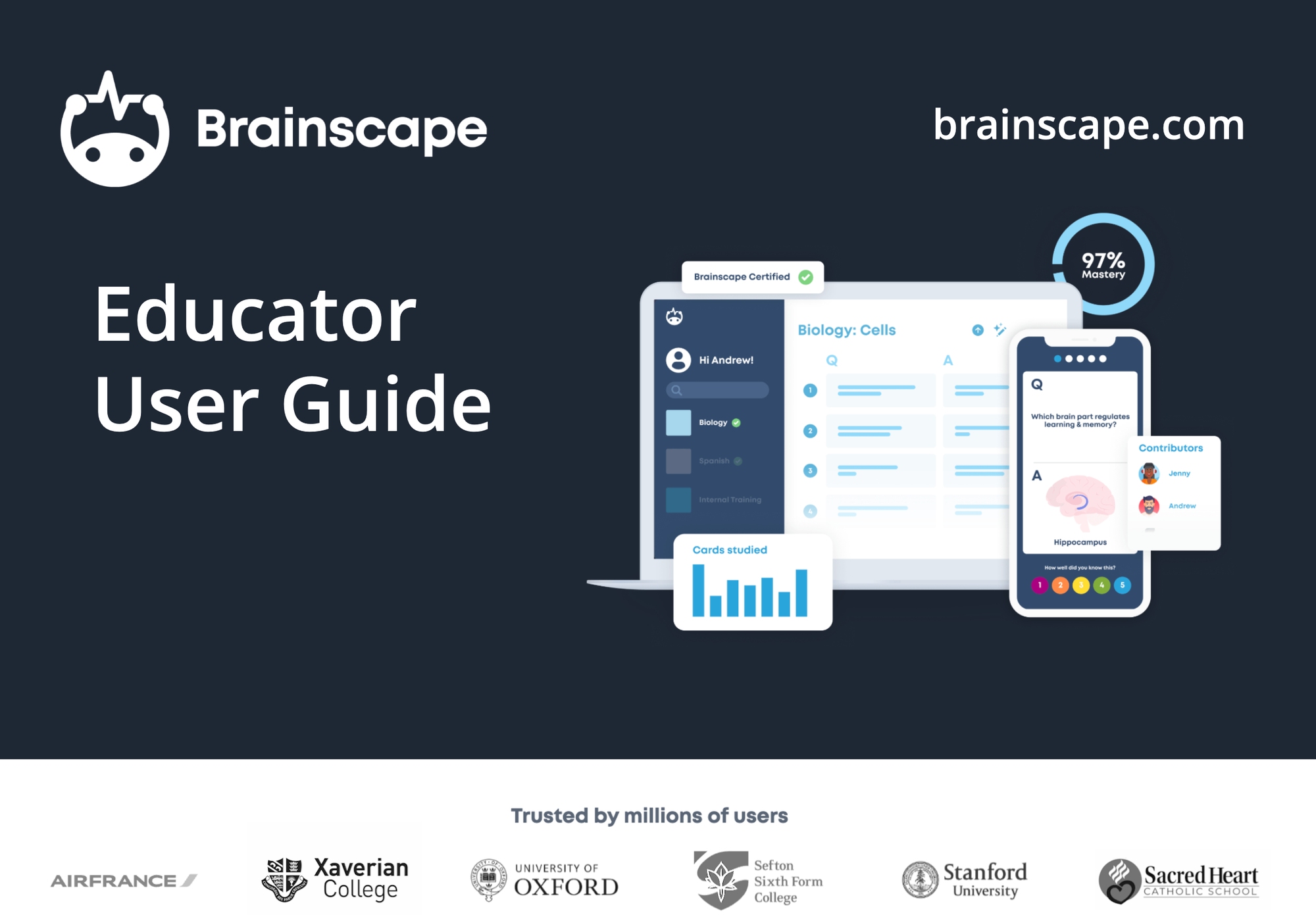
Additional Reading (if you’re a sucker for punishment)
If you loved this, you’ll also love these other nerdy science articles we wrote about:
- What is Active Recall? How to Use It to Ace Your Exams
- What is Metacognition (& How Can It Help You Remember Anything Better)?
- What is Spaced Repetition (& Why Is It Key To All Learning)?
References
Agarwal, P. K., Nunes, L. D., & Blunt, J. R. (2021). Retrieval practice consistently benefits student learning in real-world classrooms: A review of applied research. Educational Psychology Review, 33(2), 1–30. https://doi.org/10.1007/s10648-020-09535-9
Butler, A. C. (2010). Repeated testing produces superior transfer of learning relative to repeated studying. Journal of Experimental Psychology: Learning, Memory, and Cognition, 36(5), 1118–1133. https://doi.org/10.1037/a0019902
Cepeda, N. J., Pashler, H., Vul, E., Wixted, J. T., & Rohrer, D. (2006). Distributed practice in verbal recall tasks: A review and quantitative synthesis. Psychological Bulletin, 132(3), 354–380. https://doi.org/10.1037/0033-2909.132.3.354
de Bruin, A. B. H., & van Merriënboer, J. J. G. (2023). Worth the effort: Start and stick to desirable difficulties to improve learning. Educational Psychology Review, 35, 72. https://doi.org/10.1007/s10648-023-09766-w
Dunlosky, J., & Rawson, K. A. (2015). Practice tests, spaced learning, and retrieval practice: Keys to long-term retention. Educational Psychology Review, 27(4), 705–713. https://doi.org/10.1007/s10648-015-9310-1
Potts, R., & Shanks, D. R. (2014). The benefit of generating errors during learning: Evidence from a multiple-choice paradigm. Journal of Experimental Psychology: General, 143(2), 644–667. https://doi.org/10.1037/a0033194
Roediger, H. L., & Karpicke, J. D. (2006). Test-enhanced learning: Taking memory tests improves long-term retention. Psychological Science, 17(3), 249–255. https://doi.org/10.1111/j.1467-9280.2006.01693.x
Trumble, E., Kuhr, B., & Rawson, K. A. (2023). A systematic review of distributed practice and retrieval practice in education. Education Sciences, 13(7), 688. https://doi.org/10.3390/educsci13070688
Yang, C., Luo, L., Vadillo, M. A., Yu, R., & Shanks, D. R. (2021). Testing (quizzing) boosts classroom learning: A systematic and meta-analytic review. Psychological Bulletin, 147(4), 399–435. https://doi.org/10.1037/bul0000309
Zheng, Y., Martorella, G. A., & Shanks, D. R. (2024). A working-memory-dependent dual-process model of the testing effect. npj Science of Learning, 9, 11. https://doi.org/10.1038/s41539-024-00268-0
